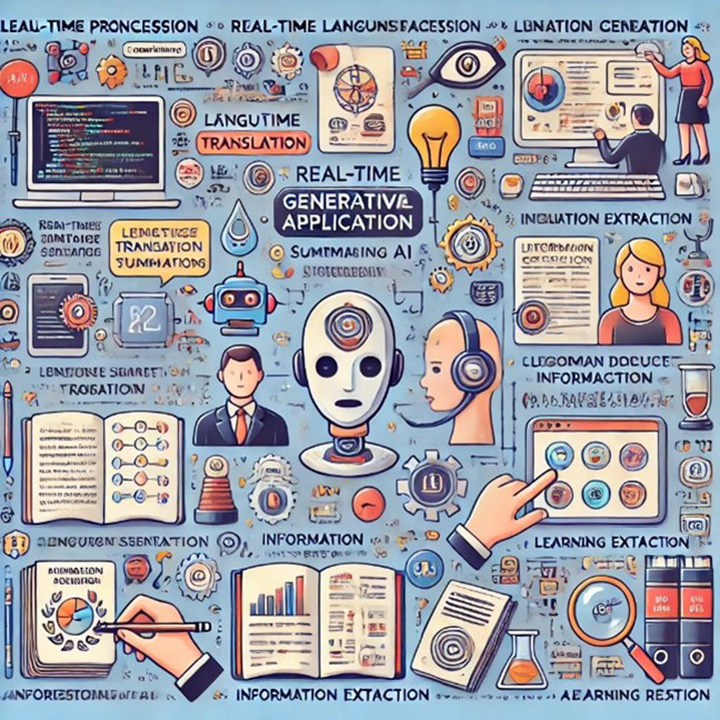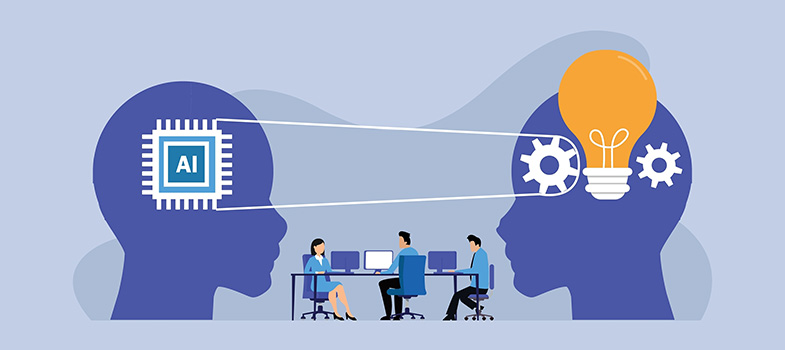3 General use cases for GenAI
In the first course, Understanding Generative AI, you learnt about GenAI technology and how general-purpose public large language models (LLMs) such as Claude, ChatGPT and Microsoft Co-Pilot can generate human-like text, engage in conversations, create images, write computer code and answer questions.
LLMs can be used to streamline workflows and assist with tasks that might help us become more productive and efficient. Keeping track of the number of GenAI products being released is challenging – at the time of writing, ChatGPT was still the most popular, but there are other models emerging.
As organisations begin to explore GenAI tools it is important to distinguish between ‘everyday’ AI tools (ChatGPT, Claude, etc.) and more specialist AI tools. Starting with the ‘everyday’ tools offers a practical first step before considering the adoption of more advanced or bespoke AI solutions.
This course does not recommend any specific GenAI tools. Instead, it aims to raise awareness of the wide range of tools available and to emphasise the importance of selecting the most appropriate one for your particular task and context.
In this section of the course we explore general use cases for LLMs.
 Further reading
Further reading
If you want to find out more about the most popular AI powered tools in 2025, you can read The Top 100 Gen AI Consumer Apps – 4th Edition | Andreessen Horowitz.

 AI is transforming the world of work, are we ready for it?
AI is transforming the world of work, are we ready for it?
Watch this video ‘AI is transforming the world of work, are we ready for it?’ from the Financial Times (2024).
Reflect on how organisations experiment and invest when things are changing at such a rapid pace.
Discussion
The film highlights that AI might be the biggest change to the workplace in our lifetime but identifies there is a lot of hype and concern. Organisations should think carefully about their needs. They should recognise the imperfections and limitations of the technology and critically assess where it might be appropriate in their business.
Before exploring the types of tasks that free and paid-for general-purpose public LLMs – such as Microsoft Copilot, DeepSeek or Gemini – can support, it is important to emphasise the need for responsible and ethical use of GenAI tools. It is also important to explain there are differences between publicly available GenAI tools (which can be both free or subscription based) and corporate versions, particularly regarding data usage policies.
Click on each label below to read more.
As discussed in the other courses in this series, when using any LLM it is advisable to:
- Read the terms and conditions.
- Be aware of the legal implications of AI generated content.
- Understand the rules on data protection, intellectual property and copyright.
- Avoid inputting any sensitive personal or organisational information into standard public versions of LLMs.
Organisations should establish clear guidelines and policies outlining what information can be shared with LLMs and which tasks are appropriate for their use. Human oversight and critical thinking remain essential.
Over-reliance on LLMs can lead to de-skilling so it is important to maintain a balanced approach. LLMs should be viewed as collaborative tools that assist, rather than replace, human skills and expertise.
Session 1: Introduces general use cases for GenAI – 90 minutes



